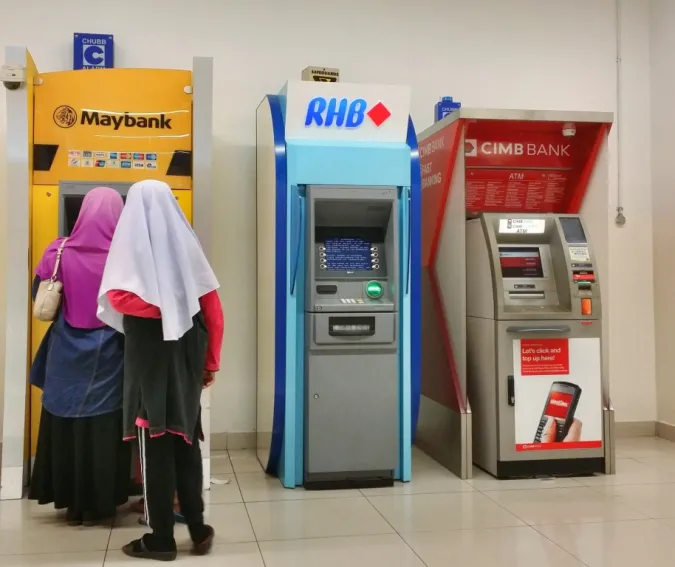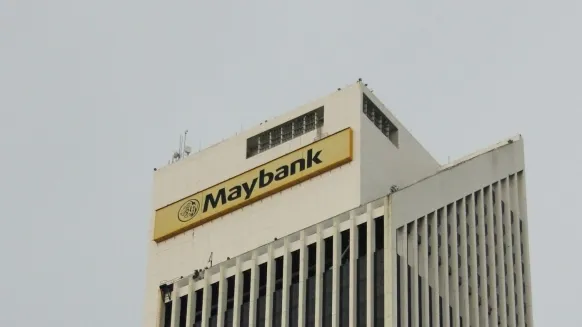
Asian Islamic banks seek synergies amidst sea change in fintech, regulations
Islamic banks are grappling with digitalisation which has taken conventional banks by storm.
Mention the phrase “financial technology disruption” and most banks will wince, scarred as they are over the encroachment of fintech startups on their markets and profits. But some Asian Islamic banks seem to be taking the trend in stride, following the guidance of their mother banks in Indonesia and experimenting with sandboxes in in Malaysia.
There seems to be a realisation that Islamic banking cannot survive in a bubble amidst sweeping changes in technology and regulatory regime, and must start forging stronger relationships with conventional banks, technology firms, governments as well as key consumer groups like SMEs. This synergistic urge is on full display as Islamic banks grapple with digitalisation, which has taken conventional banks by storm.
Andrae Krishnawan, director at OCBC NISP, said that most of the Islamic banking entities in Indonesia are closely related to their mother banks, so many have adopted a coping strategies of learning from the lessons of their mother banks and finding the synergy to create solutions together. “Since over the past years digitalisation has become a hot issue in conventional banks, and most of the banks are being so adaptive regarding the market demand in digitalisation, so is the Islamic banking industry which only follows what happens in their mother banks,” said Krishnawan.
He said the government, in supporting Islamic banks, can do more in this regard through the creation of better incentives for subsidiaries to use their mother banks’ infrastructure. This will have an effect of reducing investment cost for Shariah banking, given the almost ubiquitous setup of having mother banks that support operations.
Fintech sandboxes
Last year, Malaysian central bank Bank Negara Malaysia launched fintech sandboxes which have been viewed as a critical catalyst for the development of fintech products and services in the country. It created a Financial Technology Regulatory Sandbox Framework document that lays out how fintech partners can deploy and test their innovations in a live environment, but still confined within structured parameters and timeframes.
“Advances in fintech have led to the introduction of new business models and solutions that have contributed to improvements in customer value and experience as well as financial institutions’ efficiency and risk management,” said Bank Negara. “The bank seeks to provide a regulatory environment that is conducive for the deployment of fintech. This includes reviewing and adapting regulatory requirements or procedures that may unintentionally inhibit innovation or render them non-viable.”
Bank Negara has clarified though that whilst a sandbox serves as a protected pen for frontier-pushing fintech firms that are developing novel solutions, it is not meant to circumvent existing laws and regulations. When a product, service or solution that is not suitable to be tested in sandbox, Bank Negara takes on the approach that it calls ‘Informal Steer’ where it provides guidance and advice to fintech companies and financial institutions so they can modify their proposed business models or solutions to align with prevailing laws and regulations.
Syed Abdull Aziz Syed Kechik, chief executive officer of OCBC Al-Amin Bank Berhad said these sandboxes attract and nurture fintech companies that have an interest in pursuing a trial period in a relaxed regulatory environment. He also pointed out that Islamic banks received another breakthrough when the Securities Commission Malaysia published its Digital Investment Management framework in May. The framework sets out licensing and conduct requirements for the offering of automated discretionary portfolio management services, and has been seen by the industry as a key move towards fostering more Shariah-compliant robo advisory platforms.
As Islamic banks begin to forge a cooperative path forward with disruptive fintech technology and startups, Syed Aziz said the ultimate winner will be the consumer. “From the Islamic finance consumer perspective, fintech disruptions are largely positive,” he said. “Latest technology embraced by fintech leveraging on Internet, mobile devices and social media integrations make financial transactions more automated, user-friendly and more convenient, thus providing a superior customer experience. With more options, consumers enjoy more competitive financial services cost.”
Three gamechangers
But even as regulations help Islamic banks cope with the global fintech revolution, additional supportive measures are needed to spur growth in a time of lower oil prices since some of the largest markets for Islamic finance are oil-exporting economies, according to banking executives.
The International Energy Agency noted export revenues in OPEC countries fell to an estimated US$450b in 2016, down from US$1.2t in 2012, leading to “major budgetary strains.”
“The current economic situation in core Islamic finance markets and depreciation of local currencies has weighed on the industry’s performance in 2016 and 2017. The lack of product and market integration constrains growth, as does the absence of standardised Shariah interpretation and legal documentation,” said Syed Aziz. “Responsible financing, sustainable development goals, and impact investing through sukuk issuance and Islamic products, as well as stricter application of the principle of profit and loss sharing could create growth opportunities for the industry as a whole,” he added.
Syed Aziz cited three possible gamechangers for Islamic banks seeking growth in the medium term: Integration, standardisation, and higher interest in responsible financing. Of these, standardisation holds great potential to support expansion.
“Having standardised Shariah compliance and legal documentation, as well as more information for prospective issuers, could help the market move forward. Shariah is still interpreted in different ways across the various Islamic finance markets,” he said. “However, we believe that the gaps are getting narrower and the industry appears to be going in the right direction.”
In Indonesia, Krishnawan said several incentives have been issued to boost the development of Islamic banking in Indonesia, including product codification. “It gives Shariah Banking equality in terms of product offering and gives customers more options to choose Shariah or conventional product usage.”
Key sectors
But for Krishnawan, more measures are needed to boost the growth potential of Islamic banks in Indonesia, which he believes lies in key core sectors such as retail banking and SMEs, and the fast-expanding infrastructure industry. “Nowadays in Indonesia, infrastructure is becoming the sector that the government is focusing on. We believe that if Islamic banking are given the opportunities to join on those projects it will become our chance to boost up Islamic banking portfolio in Indonesia,” he said.
“The other sectors that should be our basic fundamental in Indonesia are retail banking and SME banking. The demographic bonus which is going to be happening in 2020 until 2035 will be to our advantage,” he added.
The Indonesian economy has made moves to encourage the growth of SMEs through foreign direct investment as well as bolstering financing access. The largest economy in Southeast Asia is also set to add 20 million more to its already robust 250 million population by 2020.
Pursuing an SME growth strategy, RHB Islamic Bank Berhad inked a strategic partnership with Credit Guarantee Corporation in August to become the first bank in Indonesia to provide Wholesale Guarantee Islamic (WG-i) Bumi, a scheme for Bumiputera SMEs. The bank said 72 existing Islamic Bumiputera SME customers under the SME portfolio will benefit from this scheme.
“We understand the challenges faced by SMEs in expanding and growing their businesses,” said Dato’ Adissadikin Ali, managing director of RHB Islamic Bank Berhad. “As such today’s partnership with CGC is testament to RHB’s commitment in creating synergy in the financial services sector to provide our customers with better options and facilities that are sustainable.”
Despite the encouraging demographics of Indonesia, Krishnawan argued that Islamic banking requires government to ramp up support in the form of incentives and assigning exclusive markets so they can better tap into the potential of these key sectors. “For the past few years actually, we had our own Islamic banking roadmap published by our regulator. But during the journey we felt that commitment from government to support our business are not like what we are expected,” he said.
“As a newly growing business in Indonesia we expect that the government support us with regulatory and market incentives. We are hoping that the government commitment should be reflected on markets exclusively given to Islamic sector only such as Haj Fun, and selected infrastructure and SME sectors.”



















 Advertise
Advertise











